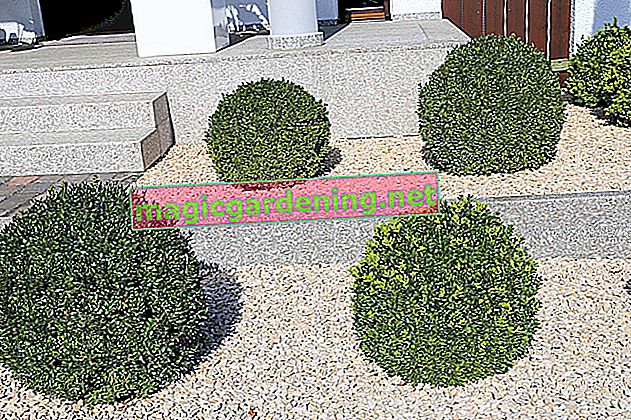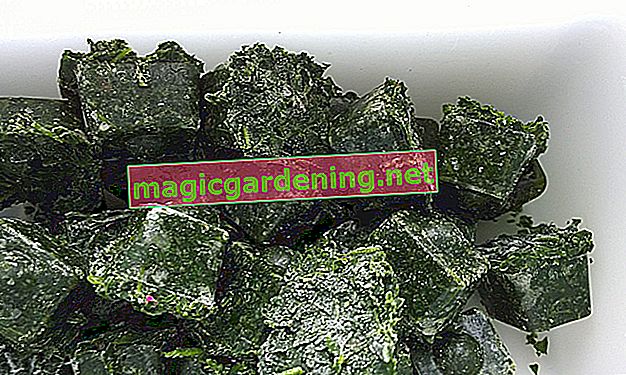
Thorns as protection for plants and fruit
With their thorns, wild blackberry tendrils have a defense mechanism that has been tried and tested for thousands of years. After all, the sweet blackberries do not grow on the tendrils as an end in themselves in summer, but serve for further reproduction and spread. This can be achieved on a larger scale if the seeds of the blackberry plants are taken up with the fruits by birds and given away again with bird manure suitable as fertilizer. The thorns thus act like a reservation of the fruit for the birds, since they deter other animals and humans.
also read
- Propagate blackberries using cuttings
- Gleditschie is also available without thorns
- The different blackberry species in nature and in the garden
Modern cultivars and breeds without thorns
For commercial cultivation and gardening, blackberry tendrils with thorns mean not only the need for protective clothing and gloves, but also the occasional scratches and painful injuries. For this reason, blackberry varieties have been bred in the last few decades, which not only produce a higher yield of larger fruits, but also have few or no thorns on the tendrils. However, a few decades ago, early breeding attempts such as the following varieties were of secondary importance and not completely frost-hardy:
- Thornfree
- Thornless Evergreen
- Black Diamond
- Black Pearl
In contrast, these taste and climatological disadvantages have been largely compensated for in newer breeds of blackberries without thorns, including, for example:
- Navaho Bigandearly
- Little Black Prince
- Navaho Summerlong
- Tayberry
However, the Tayberry is not a black blackberry in the classic sense, but a cross between blackberry and raspberry with rather red fruits.
Use thorny blackberry varieties profitably
Not all gardeners tend to use thornless blackberry species these days. After all, blackberries are often used like a hedge as a natural fence, where the sharp thorns protect against unwanted intruders. For this purpose, the blackberry plants are planted in the garden along the property line on a trellis made of wooden pegs and tension wires, for which the Theodor Reimers variety is well suited.
Tips & Tricks
The proven blackberry variety Theodor Reimers is not thornless like thornless blackberries from modern breeds, but the variety combines the advantages of large and aromatic fruits with the defensive strength of wild blackberry tendrils.








